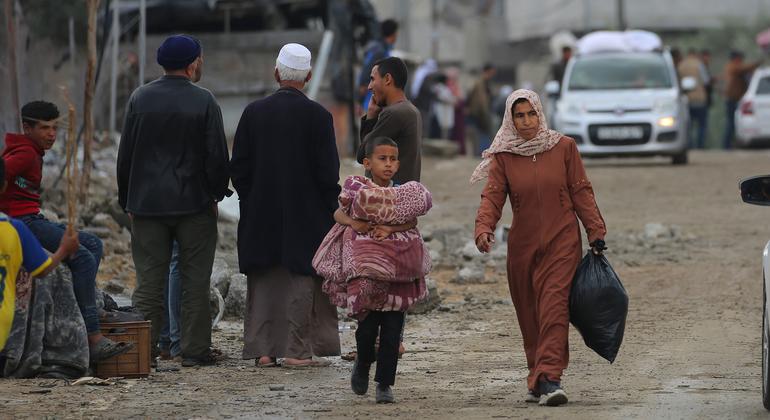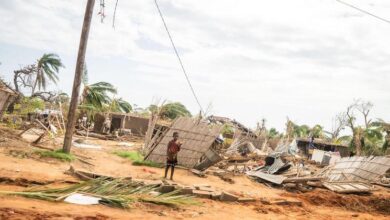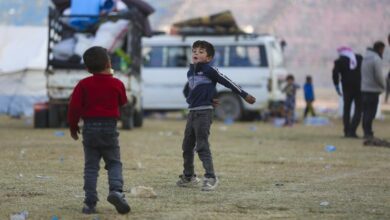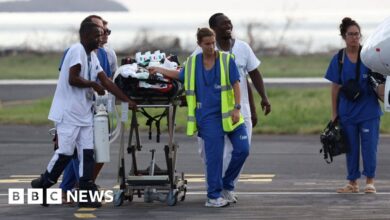Support Palestinian women-led organizations at the heart of the aid response in Gaza

United Nations Women published in its fourth edition Gender warning since the war began eight months ago, which looks at the enormous challenges these organizations face while highlighting their commitment to saving lives.
A series of reports documents how the lives of women and girls have deteriorated in areas such as food security, shelter, health and safety.
Difficult to survive
The latest data collected in April revealed that over 80 percent of those surveyed in Gaza said they were dependent on food assistance. Furthermore, 83.5% said that the support received was not enough to meet their family’s basic needs.
The gender alert details the findings of UN Women’s assessment of 25 Palestinian women-led organizations that remain at the forefront of the humanitarian response despite the dire situation.
Together, they maintain a network of 1,575 employees across Gaza and the West Bank, and their offices serve as important hubs for providing support and coordination.
Works amidst destruction
Nearly 90% of organizations had their offices damaged and 35% were completely destroyed.
“In this difficult context, nearly 60% of organizations said they can operate at full capacity,” UN Women said.
Additionally, 88% have turned to emergency relief, providing essential services such as distribution of food and non-food items, cash assistance and protection-related services, including psychosocial support.
Invest in resilience
At the same time, organizations face financial difficulties with 56% reporting reduced funding and 88% experiencing major financial difficulties hindering their ability to deliver vital services.
UN Women Executive Director Sima Bahous said they must be supported.
“The work of women-led organizations in Gaza and the West Bank is primarily concerned with the survival of women and girls and maintaining hope, dignity and the possibility of a future,” she said. better future for the people they serve.”
“Investing in their resilience is not only important but key to a comprehensive response so no one is left behind.”
The report calls for action to actively fund women-led organizations, which are critical to reaching the women and girls most in need.
Other recommendations include advocating for increased humanitarian access, thereby allowing these organizations to scale up their life-saving responses, and including women-led organizations in all including humanitarian coordination structures to ensure effectiveness and inclusion.
Hospitals in Gaza are overloaded
Israeli military operations Rescue hostages at Nuseirat refugee camp The United Nations said on Monday that the weekend had overwhelmed the already limited capacity of Gaza’s hospitals.
This applies in particular to Al Aqsa and Al Awda hospitals in Deir al Baleh and the Nasser Medical Complex in Khan Younis, said UN Spokesperson Stéphane Dujarric speaking in New York.
More than 270 people, including children and other non-combatants, were killed in fighting between Israeli forces and Hamas militants in and around the camp on Saturday.
Mr. Dujarric said an inter-agency delegation to Al Aqsa hospital that day found the facility was hosting about 700 patients, or almost five times the capacity for boarding services and only one generator is still running.
Fuel is running out
He added that there is still a severe shortage of fuel in Gaza. Humanitarian organizations reported that only 20% of supplies needed for critical water and wastewater facilities were received during the week of May 26.
“These shortages, along with power cuts and infrastructure damage, are severely disrupting operations and limiting people’s access to water. As of June 2, daily water production was only 26% of pre-conflict levels,” he said.
According to the United Nations Palestinian refugee agency, many displaced families in Gaza are forced to rely on dirty sea water for their daily needs. UNRWAHotter temperatures and lack of sanitation are making an already dire situation worse.

A floating dock to transport humanitarian goods was built off the coast of Gaza.
Update floating dock
Mr. Dujarric also informed the press about further delays related to the floating dock built by the US military in May.
“World food program (WFP) colleagues told us that We are temporarily suspending operations at the floating dock until we conduct a thorough assessment of the security situation to ensure the safety of our employees and partners,” he said.
“The position of the World Food Programme, as the logistics arm of the United Nations operation in Gaza, has always been to support any United Nations and international efforts to increase supply flows. humanitarian aid into Gaza and the World Food Program has welcomed the relief that has been received through the dock since it began operations.”
He said a total of 85 WFP trucks carrying about 748 tons of humanitarian goods have been delivered so far.




